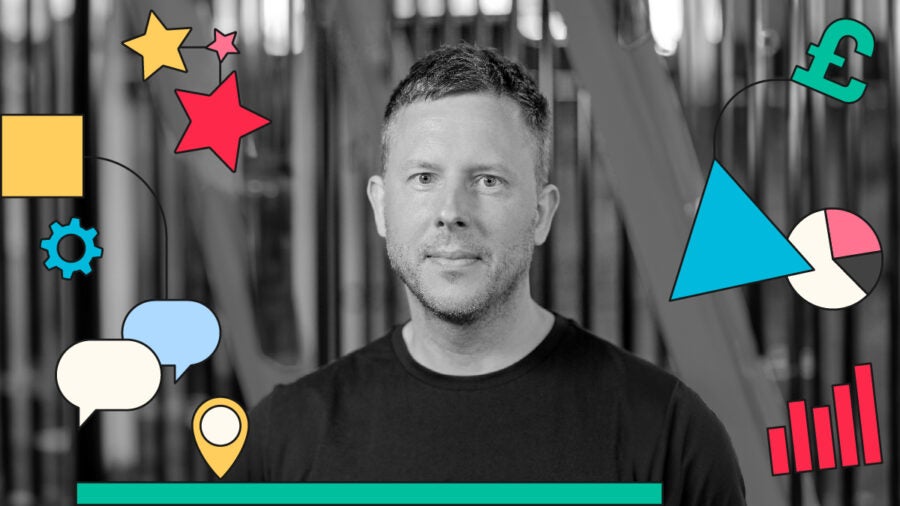
Tom Leathes, CEO and founder of Motorway, the online used car sales platform, admits he has struggled with self-criticism in his career and has had trouble switching off.
Here, he talks about finding purpose at work, the importance of a diverse team, setting personal boundaries and more.
What do you think makes a good leader?
I think it’s important to have a very clear vision for the future and be able to articulate in such a way that inspires a team to get behind it, to really believe it. Ultimately, if you’re in a startup, the main challenge is convincing someone else to maybe leave their safe job and join you on this mission. You need to frame it in a way that makes them want to jump out of bed in the morning and join you through all the twists and the turns to come.
What single thing do you think would make your job easier?
A window into the future would be nice! But since that isn’t possible, I’ll go with continuing to have and grow a really committed and knowledgeable team around me. In the early days of running a business, when you’re only around 10-20 people, you might be able to have an oversight of and influence on every aspect of the operation. But as time goes on, when you reach a level of a few hundred staff, your attention gets stretched.
That means it’s really important that you recruit people with real experience and insights that can help you have expertise across every aspect of the business. Our chief operating officer, for example, spent 15 years at Amazon. Our CFO spent 15 years at Expedia. Building a great team around you will always make your job a little easier, because it will allow you to be more flexible with your own time and energy.
What advice would you give to your 18-year-old self?
Allow yourself to fail and understand that not everything has to be a success. I’ve learned from my mistakes; if I hadn’t had those failures, I’m not sure I would be anywhere near where I am now. I wish that I’d gained that perspective a little earlier. If I’d told myself it was actually OK to slip up, I might have moved on from setbacks more quickly.
What do you consider to be the biggest challenge in business right now?
I think it’s the pace at which technology is moving. The obvious example is artificial intelligence. I think there’s a real danger of businesses jumping on the bandwagon here, for the sake of it. You’ve got to be careful that you use AI efficiently and effectively. You need to identify the specific purpose you want to automate, but also understand the importance of human oversight for your customers and your team.
Which book do you think every business leader should read at least once?
The Hard Things About Hard Things by Ben Horowitz has some great advice on entrepreneurship and growing a business.
What was your first job?
Well, I only ever had one job, after university. After that I left to start my first company. But the first job I actually worked for someone else in was as an account manager for a carbon offset company called Future Forests.
What was your worst job?
Well, the company I had before Motorway, which was called Top 10, failed. It was a hotel recommendation app. Basically, we grew too quickly and it didn’t work out. We lost a lot of money for investors and it was a very tough challenge. But we worked very hard to do it right. I think a lot of what I learned from that failure was what drove me to succeed with Motorway.
What’s the best piece of business advice you have received?
Be clear. If you can define your vision and purpose really early on, then that will really guide you. It’s important to have clearly defined values in your organisation, so you always have something to refer back to when you’ve got a decision to make, or if you’re in a tough situation and need a bit of reassurance on what you should do. And you need to make sure that everyone at your organisation feels this same way. You want people to work with you for the right reasons. If they do, your team will be stronger for it.
What excites you most about your current role?
I’m very lucky to have the opportunity to work with some really world-class colleagues from all walks of life. We’re big enough now to be able to draw on a broad set of experiences and backgrounds. I’m seeing innovation happening across the business, which I couldn’t have done myself. It’s a really energising and inspiring environment to work in.
Finally, what do you do to protect yourself against burnout?
Having capable and passionate staff around me helps day-to-day for a start. But, outside of work, I try to keep my priorities clear. I am strict with myself about spending time with family and friends and switching off. I like to go for runs. Running is a good stress reliever and a head cleanser. I know that if I haven’t been for a run then my day is going to be more difficult. I think if you’ve gone for a run, you get a sense of achievement and it reassures you that you can cope with whatever is going to come into your inbox that day.

Tom Leathes, CEO and founder of Motorway, the online used car sales platform, admits he has struggled with self-criticism in his career and has had trouble switching off.
Here, he talks about finding purpose at work, the importance of a diverse team, setting personal boundaries and more.




